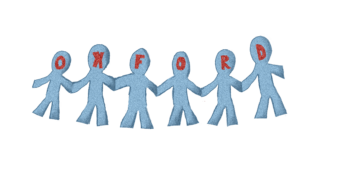Meritocracy — the idea that success is based solely on ability and effort — has long been praised as the foundation of a just society. The notion that hard work pays off, regardless of background, seems simple enough, but reality has often been far more complex, especially for minorities and other historically marginalized groups.
Now that concept is under scrutiny after President Donald Trump signed an executive order terminating federal diversity, equity and inclusion initiatives. Decades of progress are now in question, leaving an urgent debate: Can meritocracy and DEI coexist?
The role of DEI in the workplace
DEI is not a new topic of debate. Once optional corporate initiatives, DEI programs have become essential frameworks shaping hiring, promotion and workplace culture. Companies are now more accountable than ever for diversifying their workforce and creating equitable opportunities. These policies help address barriers that so-called merit alone often fails to overcome.
Because of DEI hiring and retention rates for marginalized groups have improved, and access to education has expanded.
Yet critics argue some DEI efforts prioritize demographic representation over objective qualifications, pressuring hiring managers to meet diversity quotas at the expense of merit-based criteria such as skills, experience and performance.
Some high performers, regardless of background, may feel undervalued in a system that appears to prioritize diversity benchmarks. At the same time, candidates hired under these initiatives may feel their qualifications are questioned and that they were chosen to check a box rather than on merit.
But does the problem lie with DEI itself or with those implementing it? Are hiring managers failing to find candidates who are both qualified and diverse?
The myth of meritocracy
In 2025, pure meritocracy remains more myth than reality. The playing field has never been level, whether people choose to acknowledge it or not. For many, success requires working exponentially harder just to receive a fraction of the opportunities granted to others.
This is where the confusion between “equality” and “equity” emerges. Imagine everyone gets the same box to stand on and see over a fence. But what if some people are still too short? The solution isn’t to deny them a view — it’s to provide different-sized boxes so everyone can see over the fence.
Meritocracy assumes an equal starting point, but systemic barriers — education, wealth disparities, professional networks — continue to shape opportunities. In that sense, meritocracy has always been an incomplete ideal: a privilege for some, a myth for others.
The path forward
No system is perfect, and replacing one flawed model with another isn’t the answer. But dismantling DEI initiatives without addressing the inequities they were designed to fix is a step backward.
In response to political pressure, some companies are scaling back or eliminating DEI programs. Corporations such as Target, Amazon, Walmart and McDonald’s have announced plans to end certain DEI policies, triggering public backlash and boycott threats. Consumers are now questioning how to support minority-owned businesses while still accessing everyday essentials.
Black- and brown-owned businesses, as well as women-owned enterprises, are caught in the crossfire. Many have contractual agreements with major retailers that prevent them from simply removing their products and launching independent ventures.
The impact extends beyond corporations. Historically Black colleges and universities also stand to lose vital federal support. The executive order revokes previous directives backing affirmative action and DEI initiatives, potentially reducing funding for programs designed to promote diversity in higher education. HBCUs already receive significantly less federal funding than predominantly white institutions, and this move threatens to further limit resources for students who rely on them.
Ironically, critics argue DEI contradicts corporate goals, yet the existing imbalance has already skewed the system. If anything, DEI efforts attempt to correct past injustices rather than create new ones.
True equality cannot exist without first addressing inequities. The real issue isn’t choosing between merit and inclusion — it’s redefining both in a way that acknowledges systemic disparities while striving for excellence. The path forward requires both those in power and those affected to work toward a society where merit can truly thrive, not despite DEI, but because of it.
Chequoia Adderley is a senior IMC major from Pascagoula, Miss.





































